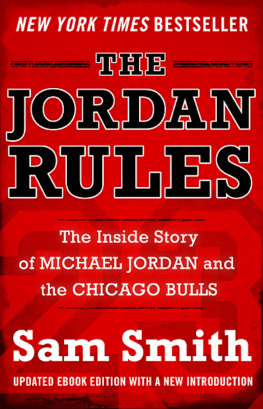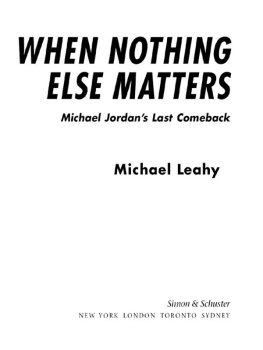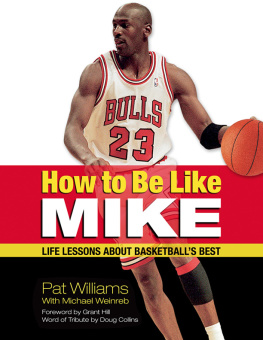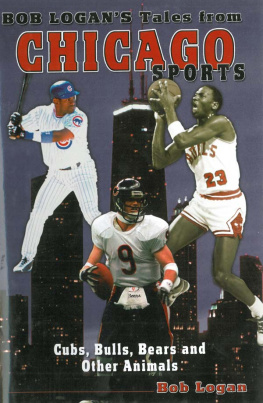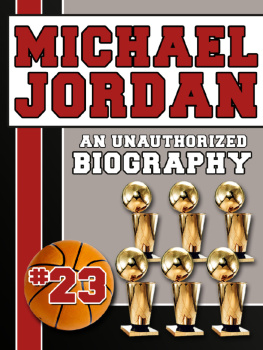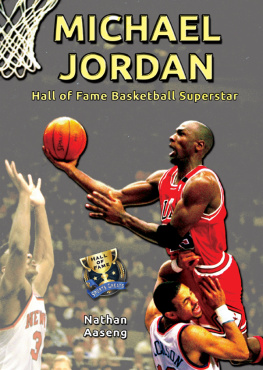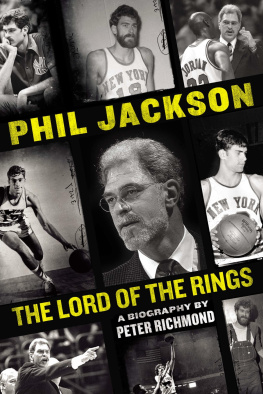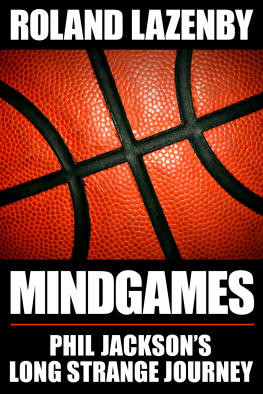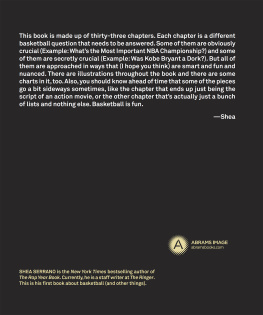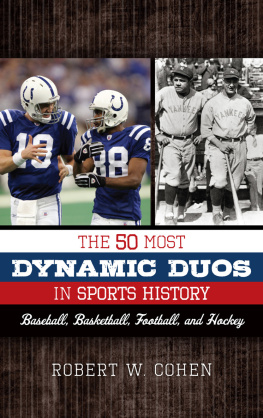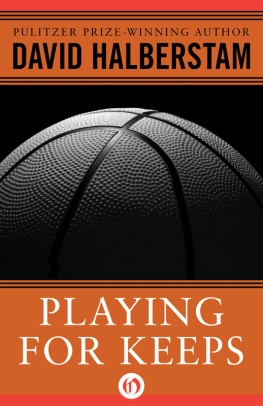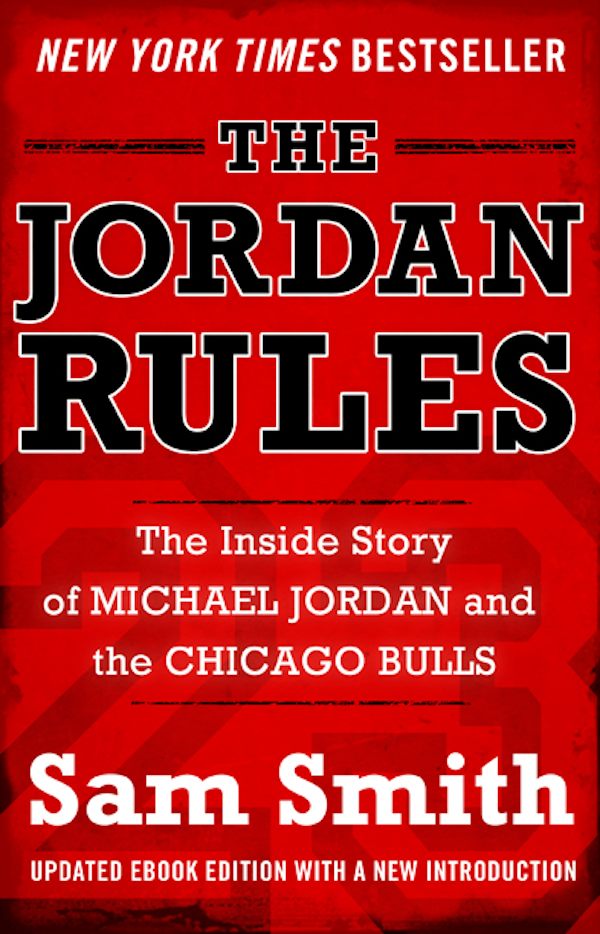Introduction
So there was the time Mike Ditka called me a jerk, and the time Roy Williams said I didnt know what I was talking about, whoever I was. There was the symbolic book burning on TV, and the time the wire services reported me missing after various threats. Yes, writing a sports book can be fun and enlightening.
Its been two decades since The Jordan Rules was published, and we all pretty much know now what only those of us around the Bulls at that time knew: Michael Jordan is probably the most amazing basketball player anyone has ever seen, and he didnt always quite work a room like Ghandi.
Michael has made out pretty well, and the years have been good to me, too. I left the Chicago Tribune in 2008 after almost 29 years, and I now write, of all places, on the Chicago Bulls Web site, Bulls.com. I suspect, as with The Jordan Rules, Michael still hasnt read me in either place. Some people read The Jordan Rules today and ask me why people were so upset, though they constantly remark that it could be a literary achievement worthy of Tolstoy. Well, maybe that part isnt true, but I am of Russian heritage. So, yes, I too can say I knew suffering when writing. Well, did you ever try the press room meal in Philadelphia?
It actually seemed more like history in reverse: The Jordan Rules was Tropic of Cancer before sensibilities and realities caught up. Man, the fans were mad. And then they realized, Okay, thats not too bad. A few more championships did ease that concern.
Of course, all the hubbub did help land the book onto The New York Times bestseller list as high as Number 3, as I recall, and for about three months. I remember telling Norman Mailer at Elaines, Norm, now with your prepositions
Not really. But I do remember the first time I saw Jordan after the book was published. He was sitting in the Bulls locker room after the team returned from the long annual November west coast circus road trip (named for the circus that came to town every year and kicked the Bulls out of the Chicago Stadium), which they had just swept for one of the only times in franchise history. Jordan was in his locker stall, his head down sorting through tickets to leave for family and friends. I walked over.
But let me tell you a little story first, about The Jordan Rules and how it all happened.
***
It was a dark and stormy Sunday night. Well, it was dark. I never thought about writing a book, any sort of book, and certainly not one about Jordan. Id even been reluctant at first to follow the Bulls as the full-time beat writer. Id been having a terrific time doing some backup for the regular beat guys, Bob Sakamoto and Bob Logan, and doing some big basketball features, like when Id spent a weekend in Albany with Phil Jackson and his CBA team.
But now Id been on the beat a few seasons. It was exhilarating in many respects to live with a professional sports team, though back then it was more under the radar with the Bulls because they werent winning. Sure, Jordan was famous and cool, but the NBA was still Magic and Bird, and the rest of the season was a warm-up for their annual championship dance. There were no private planes or fancy hotels. We flew together, rode together and lived together. Jordan was the only Bull with an annual salary of $1 million. So it was a more intimate and comfortable setting, perhaps too comfortable. It was late summer of 1990, and after some time off I was again thinking about the upcoming season. I knew there was a story there fighting to be told, one I couldnt quite completely tell as a daily beat writer, limited by the space in a daily newspaper.
I thought maybe I would write a book. After all, Id known a lot of sportswriters who did that. Id read their work. It wasnt exactly art. Id shrugged it off a year or so before when my Tribune colleague, Bob Greene, asked me whether anyone thought of writing a book about Jordan. There had been some instant paperback books. Rick Telander, who was then at Sports Illustrated, was trying to get Jordan to commit to a movie version of his book, Heaven Is a Playground. Mark Vancil, who was then with the Sun-Times, was talking to Jordan about an authorized biography (and would later do some coffee table-type books with Jordan). I didnt take it all too seriously as Jordan and the Bulls then didnt seem like such a big story, and I was busy enough with the daily beat. The Bulls were losing early in the playoffs, and though they were slowly gaining on the Pistons, it still didnt seem like they could beat them.
But I thought it would be something to say that I wrote a book, sort of like climbing the Great Wall of China. It doesnt get you a degree or a better job, but its something you can say you did. I had worked in Washington, D.C. as a political writer in the 1970s, and the news service I worked for rented some space from Mark Lane, the Kennedy assassination conspiracy author. He had a bunch of books hed written stacked up in a corner, and I thought it would at least be cool to say youd written a book. My ambition really wasnt much more than that.
As I began to think about it, I imagined a book that was more a diary of a season, a sendup of a sort to David Halberstams The Breaks of the Game, which chronicled the Portland Trailblazers 1979-80 season. Halberstam was my favorite non-fiction writer, someone I patterned myself after as much as I could, and The Breaks of the Game was my favorite sports book. I felt if I wrote a book Id want to pattern it after The Breaks of the Game. Unfortunately, when Halberstam wrote it, Bill Walton was hurt and it wasnt the commercial success The Jordan Rules turned out to be.
As an aside, Halberstam came around the Bulls in 1997-98 to write a book about Jordans final season. I was thrilled to be able to have dinner with him a few times. Ive never been much interested in celebrities and never collected autographs as a kid. Maybe it was growing up in Brooklyn and seeing Dodgers players around. As a kid I was a good bowler and even bowled for future Mets manager Gil Hodges traveling team. Gil used to give us pep talks which I later imagined was his training for managing the Mets. I never really thought to ask him for an autograph. He was just Mr. Hodges.
I did tell Halberstam that I intended to write The Breaks of the Game, and it became The Jordan Rules. He asked me for my old, dog-eared paperback of his book, and he sent it back to me with a cool inscription reading, If you ever write a book, I hope its one like this. I miss him and his work.

